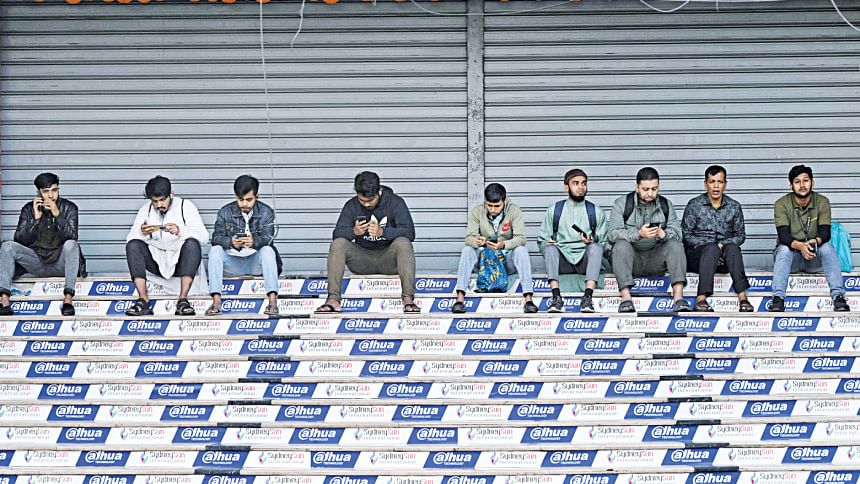GP, Robi get 20MHz of spectrum each to improve service

Grameenphone and Robi, the top two mobile network operators in Bangladesh, have each secured a spectrum allocation of 20 megahertz (MHz) to boost the quality of their services.
Bangladesh Telecommunication Regulatory Commission (BTRC) recently approved the operators' request in this regard, deciding they will pay Tk 1,160 crore under a 15-year contract.
The spectrum will be allocated from the 2.6 gigahertz (GHz) band suitable for 5G and 4G services.
Spectrum refers to the range of electromagnetic radio frequencies used to transmit data over air.
Increasing the operators' spectrum will facilitate higher data transfer rates, thereby reducing network congestion and improving the overall connectivity
Sufficient spectrum is essential for ensuring better mobile network performance as it determines the capacity, speed and coverage operators can provide.
Also, increasing the operators' spectrum will facilitate higher data transfer rates, thereby reducing network congestion and improving the overall connectivity.
Grameenphone and Robi will each pay for their fresh allocations through 10 equal annual instalments.
This decision comes more than two years after Robi and Grameenphone each purchased 60 MHz from the 2.6 GHz band at an auction on March 31, 2022.
At the time, Banglalink acquired 40 MHz from the 2,300 MHz band for Tk 2,241 crore while state-run Teletalk secured 30 MHz from the same band for Tk 1,681 crore.
Shahed Alam, chief corporate and regulatory officer of Robi Axiata PLC, expressed gratitude to the BTRC for providing spectrum from the 2.6 GHz band.
"Sufficient spectrum is key for serving customers with quality services, but it involves massive investment from operators," he said.
On the other hand, Alam urged the BTRC to resolve the lack of availability in number series, which is critical for adding new subscribers.
"If this problem persists, making huge investment in acquiring spectrum will add to the financial struggles of the company," he said.
"So, we sincerely hope the BTRC will resolve this soon so we can truly create an inclusive network for all citizens of the country by acquiring new spectrum," Alam added.
As per BTRC documents, 160 MHz of spectrum from the 2.6 GHz band had been allocated for operators in Bangladesh.
And while Grameenphone and Robi each got 60 MHz at the auction, the remaining 40 MHz of spectrum was allocated for Internet Exchange Limited (IEL), a broadband wireless access provider.
But the BTRC then cancelled IEL's allocation in July 2022 and decided that it will go to mobile operators.
USD DILEMMA CAUSES DELAY
So, with 40 MHz to sell in hand, the BTRC received applications for an allocation from both Robi and Grameenphone soon after announcing the decision.
However, the recurring rise in US dollar rates had become a point of contention.
This is because during the auction, the price per MHz was set at $6.5 million, or Tk 56.03 crore as per the exchange rate at the time.
But the price per MHz ballooned to Tk 71.5 crore after the US dollar price rose, causing a dispute over determining the currency to be used for purchasing the spectrum.
Against this backdrop, the BTRC sent separate letters seeking the operators' views in this regard.
The operators, both in writing and verbally, responded that it would create obstacles in expanding their networks if the spectrum price is determined based on the current US dollar rate.
"Since the economic capacity of all operators is not the same, the costly spectrum will compromise the level playing field," Robi said in a letter.
Robi and Grameenphone had both proposed that spectrum from the 2.6 GHz band should cost Tk 58 crore per MHz.
And after obtaining approval from the state minister for ICT, the telecom regulator decided to allocate 20 MHz to each operator at their proposed price, according to official documents of the agreement.

 For all latest news, follow The Daily Star's Google News channel.
For all latest news, follow The Daily Star's Google News channel. 



Comments